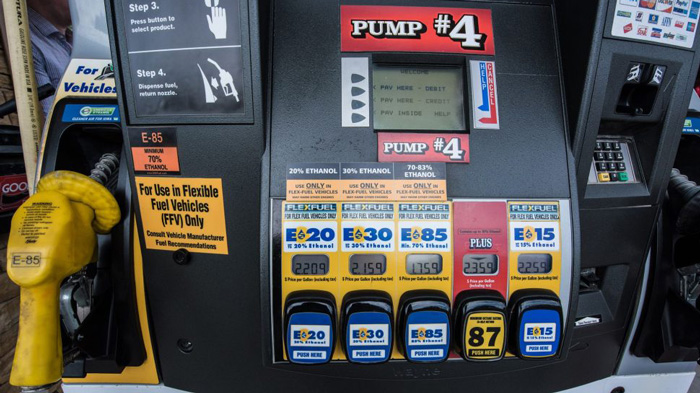
U.S. EPA lifts ban on summertime sales of E15
The U.S. Environmental Protection Agency (EPA) has removed the key regulatory barrier to using gasoline blended with up to 15% ethanol (E15) during the summer driving season.
“Just in time for the summer driving season, it will be easier for gas stations to sell E15 year-round, giving drivers more choices at the pump,” said U.S. EPA Administrator Andrew Wheeler.
“With today’s action, EPA is finalizing regulatory changes to E15 to adopt the 1-psi Reid Vapor Pressure (RVP) waiver that currently applies to E10 during the summer months,” the EPA announced on 31 May. The move removes the most significant barrier to wider sales of E15 in the summer months, thus expanding the market for ethanol in transportation fuel in the United States.
U.S. President Donald Trump promised farmers last year that his administration would allow the year-round sale of E15.
EPA is also finalizing regulatory changes to modify certain elements of the renewable identification number (RIN) compliance system of the Renewable Fuel Standard (RFS). The changes include public disclosure if a party’s RIN holdings exceed certain thresholds and additional data collection to improve EPA’s market monitoring capability.
These new reforms will provide EPA the information required to decide whether further action is warranted to ensure stability in the RIN market, the U.S. federal agency said.
The American Petroleum Institute (API), the national trade association representing the oil and gas industry, commented that the EPA rulemaking to extend the RVP waiver to E15 “does nothing to help fix the broken Renewable Fuel Standard (RFS), and could ultimately harm consumers and their vehicles.”
“Extending this waiver is an anti-consumer policy that risks causing costly engine and fuel system damage to nearly three out of four vehicles on the road today,” said API Vice President of Downstream and Industry Operations Frank Macchiarola. “EPA has acted outside its statutory authority in granting year-round E15 and rushed through the rulemaking process in order to meet an arbitrary deadline. This premature policy attempts to push E15 into the market before it is ready.”
API’s Maccchiarola also said that “while we are encouraged that EPA limited the scope of the proposed RIN reforms, the rule does nothing to address the ethanol blendwall, which is the main structural problem with the RFS.”
“The outdated RFS mandate was premised on the faulty assumptions of ever-increasing gasoline demand and reliance on foreign sources of oil, and the near-term commercial availability of advanced and cellulosic biofuels. History has proved these assumptions wrong, and we urge EPA to instead focus its attention on protecting consumers and fixing the RFS, which has strong bipartisan support.”
Meanwhile, the Renewable Fuels Association (RFA) welcomed the EPA’s final rule, adding that the “RFA has long advocated for an administrative resolution to this antiquated barrier.”
“In the nine years since EPA first approved the use of E15, RFA has worked tirelessly to remove the costly and unnecessary regulatory barrier that prevented retailers in most of the country from selling the fuel during the busy summer driving season,” the trade association for the U.S. ethanol industry said.













